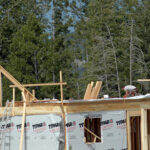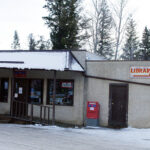Home »

Four local projects funded in MOTI program
Four East Kootenay road improvement projects stemmed from $28 million in B.C. government funding to upgrade side, secondary and forest service roads throughout the province this year.
The Remote and Rural Communities program, through the Ministry of Transportation and Infrastructure (MOTI), received $20 million to fund more than 80 shovel-ready projects that will make getting around rural Indigenous and non-Indigenous communities safer and easier.
Most of the work will be delivered by maintenance contractors, local contractors and day labour using the MOTI’s Hired Equipment program. The projects include local paving, shoulder widening, lighting installation and crosswalk markings. The program includes riprap (rock) placement and stream enhancements for fish habitat.
To date, 31 of the more than 80 planned projects are complete, and 37 more are underway.
Also, roughly $8 million will go to fund approximately 75 projects through Enhanced Forest Service Road Maintenance to help upgrade forest service roads in various locations. These projects will provide jobs for forest sector workers affected by the pandemic and will benefit Indigenous and non-Indigenous communities that rely on these roads to access public services, as well as people who use these forest service roads to access recreation sites.
A total of $3.425 million has been invested in the Kootenays.
East Kootenay Projects:
- Highway 95A/Wycliffe Park Road, north of Cranbrook, was improved by the construction of a right-turn deceleration lane and reconfigured lighting.
- Toby Creek Road near Invermere received road strengthening, drainage/culvert replacement and shoulder widening.
- St. Mary’s Lake Road in Kimberley was improved with base repairs, road strengthening and asphalt patching.
- Mission Lower Road in the Ktunaxa Nation was improved with road strengthening, drainage improvements and shoulder widening.
“Our economic recovery plan is focused on helping people, businesses and communities across B.C. build back stronger as we recover from COVID-19,” said Rob Fleming, Minister of Transportation and Infrastructure. “We are investing in infrastructure people in remote and rural areas of British Columbia rely on to access their communities, creating good jobs and supporting people across our province.”
“Upgrading these forestry roads will help improve safety for a number of rural communities while creating jobs and providing new economic opportunities for people living in these areas,” said Katrine Conroy, Minister of Forests Lands, Natural Resources Operations and Rural Development. “All British Columbians are experiencing challenges as a result of the ongoing pandemic, and those in rural parts of the province often face additional hurdles as a result of their remoteness. This investment will help maintain and improve access routes to various Indigenous and rural communities and recreation areas.”
The B.C. government administers about 60,000 kilometres of forest service roads and carries out maintenance where communities, rural residents and high-value recreation sites have priority.
To date, MOTI reports 359 people have been employed through the program, providing 3,872 days of work.
The ministry anticipates more than 700 people will have been employed for more than 12,000 workdays by the end of the program.
Lead image: Road work on Toby Creek Road earlier this year. e-KNOW file photo
e-KNOW







